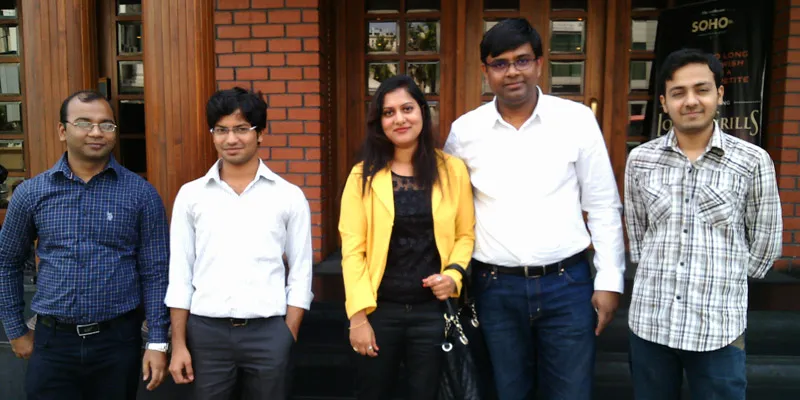I've got 99 problems but the bugs aren’t one of them
The explosion in the remote testing industry is linked to the changing structure of the IT industry, where crowdsourcing is becoming increasingly common. Praveen Singh is an entrepreneur on a mission to scale his rapidly growing tech startup. Praveen runs a web platform that turns finding bugs on websites into a game, a game that pays out cash to top players.

How does it work?
99Tests is a network of 10,000 bug testers who find errors on websites and software systems. They claim to have found close to 70,000 bugs. Clients pay the Bangalore based start-up for access to its network of freelance error hunters.
"Our whole philosophy is that we reward passionate testers”, says the soft spoken Praveen. "We enable people to work remotely and make money." Bug testers are peer reviewed by other community members, with top ranked bug finders pulling in more cash. “Our first priority is always our testers,” he says. “It is followed by the platform itself and finally, sales. “Although I’m sure investors would rather we had it the other way round,” jokes Praveen. “Rather than treat them as a low cost resource, you’ve got to value your primary asset and help them become better testers”, He offers a case study of a young mother who had quit her job and was under pressure from her family – 99Tests gave her an income and a standing in her family.
“Now, we are getting some serious investor interest,” says Praveen, who has added people onto his team making a total of five. “We are ready for the next level,” he says, mentioning interest from venture capital firms. Rather than approach VCs directly, Praveen has focused on organic growth.
Having started his career at Oracle, where he worked for three years, Praveen grew disillusioned with corporate culture. Following a stint at WebMethods, he got his first taste of the power of equity when the company was sold out, earning the engineer one lakh worth of shares. “I got the taste of taking risks and getting a reward,” he says. The 99Tests founder later joined VM Logix, a start-up of 10 people.
“People in Webmethods said I was crazy leaving such a stable 2000 people company for a 10 people company, but that was what I wanted,” says Praveen. “I was there for around three years. It was hard work but I enjoyed it because the people were great. Again, that was bought by Citrix and again I made some equity.”
What lessons did he take from the three years spent working at tech start ups?
“If you are a startup company and you have a platform, if you keep adding features to try and get more customers, you’re more of a service company than a software company. Think about scaling very early. The scaling part should be built into the model before you even start,” advises Praveen. 99Tests is a model that follows version Vilfredo Pareto’s 80-20 rule; that 80 per cent of the bugs are found by less than 20 per cent of the hunters. In the early 2000s, Microsoft found that 20 per cent of computer bugs were the cause of 80 per cent problems. The Pareto rule is gospel among quality assurance engineers as fixing those issues can result in a big improvement in the user experience.
Passbrains, a Swiss company with a subsidiary in Bangalore, uses testers in 100 countries worldwide. The firm offers a larger range of QA services than 99Tests and has a more established global presence.
Mayank Mittal, India country head for Passbrains, says there are three areas you need to get right in order to run a successful crowdsourcing business.
“You need to get the technology right first of all,” he says. “We started building our crowd testing platform around three years back and have been continuously improving it with new features since then.”
“You need to build a strong community around your platform,” adds Mayank, who says Passbrains employs community managers to maintain links with its testers.
“Finally, you’ve got to have a solid process framework for delivering good quality test results. It is one thing identifying bugs, but you need to have a system in place to ensure consistent results without redundancy while ensuring accountability and security. This is mandatory for operating in an enterprise environment,” says Mayank.
Another similarly structured European startup is Munich-based Testbirds, one of the newer crowd testing players, with over 50 employees and offices in three European countries.
All three companies are part of a multi-million dollar contract for Australian firm Revolution IT.
“We want to educate bigger enterprise clients about the advantages of crowd testing,” says Mayank, who like Praveen, is keen for bigger IT services players like Wipro and Infosys should turn more towards the crowd testing.







